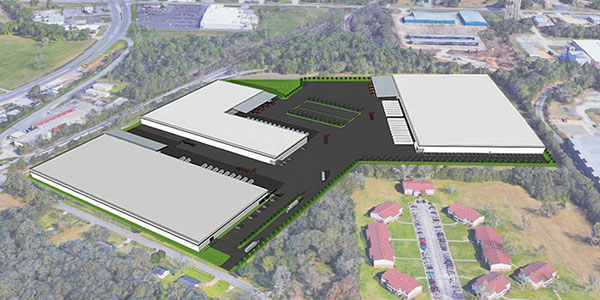Technology never takes place in a vacuum. Sooner or later, every new breakthrough has a ripple effect that changes things in ways that few imagined when that innovation was introduced. When the Internet first appeared who would have thought that it would forever change the way we watch movies and videos (Netflix and YouTube) or interact with friends (Facebook)?
Closer to home, we believe that a new technology is rapidly reshaping the way carwash operators evaluate their own businesses and interact with customers. This new technology is Radio Frequency Identification or RFID for short. For those of you who aren’t 100 percent familiar with it, RFID is a technology that, in the case of the carwash industry, uses radio waves and tags placed on vehicle windshields to identify customers as they approach a self-pay station.
More articles on: RFID
When DRB Systems introduced RFID technology to the carwash industry in 2005, it was first used to identify prepaid customers. As a carwash operator, you loaded a number of prepaid washes onto the customer’s windshield tag. Then each time the customer visited your wash, the RFID system wirelessly “read” the windshield tag and deducted a prepaid wash from his or her account. Hopefully, when all the prepaid visits were purchased, the customer would then reload the account with another round of washes.
The whole system worked great, saving time for customers and enhancing their carwash buying experience – but that was just the beginning! It wasn’t long before carwash operators began using RFID technology for unlimited monthly pass plans. Under these plans, customers have RFID tags placed on their windshields and are able to visit their carwash as often as they like in exchange for having their credit cards automatically charged a fee every month.
The ripples of RFID
Using RFID technology to sell unlimited monthly passes has set off a ripple effect that is changing the way carwash operators think about their business models – as well as the way customers view the carwash buying experience.
Monthly pass plans have been eagerly embraced by consumers, becoming more popular than anyone probably imagined when the plans were introduced a few years ago.
This popularity is evident to us at DRB Systems. Our company has already issued roughly 2.5 million FastPass® windshield tags, almost all of them for monthly pass customers.
At many sites, over half of all customers now are monthly pass holders. For some operators, the popularity of monthly passes has rejuvenated business. At Wash Works, a Manchester, Ohio, express exterior, owner Dave Jenkins reported a 73 percent increase in revenues a year after he began selling monthly passes.
Visit: RFID Buyers Guide
The success of monthly passes has created a “new carwash equation” that has seen the number of sites with high volumes (175,000+ vehicles) increase dramatically over the past three years. This is readily apparent looking at the table below. Reports from IndustryWatch® show a clear trend toward higher volume carwashes. (These are blind monitoring reports that protect the anonymity of the studied sites.
Looking at the table below, you can see that the number of sites in the highest volume category is increasing at a significantly faster rate than the number of sites washing lower volumes. Why are more sites washing higher volumes? We believe it is attributed to the growth of monthly pass plans and RFID.
IndustryWatch figures show that among our customers, car washes that sell monthly passes had traffic volumes that were about 70 percent higher than other non-pass sites. Based on IndustryWatch figures, traffic volume at RFID sites has increased every year since 2011, while non-RFID sites have experienced volume decreases.
Given the dynamics of unlimited monthly plans (most pass customers visit a carwash 3-5 times a month), it’s safe to assume that along with their higher traffic counts, these carwashes are also seeing a decrease in their dollars per vehicle. Still, the sharp rise in volume tends to offsets the dollar per vehicle decline with plenty of room to spare, resulting in an increase in overall revenue and profit.
Read also: Multi-profit center articles
Our research shows that customers who visit a carwash four times a year generate an average of $112.19 in revenue, compared to $341.81 for customers who visit 16 times. This is consistent with what researchers outside our industry have found when studying the profitability of customers in subscription plans like Netflix. According to highly regarded sales and marketing expert Tien Tzuo, CEO of Zuora, every dollar a subscription company generates is worth six times as much as the dollar brought in by traditional sales, because it cost less to acquire new business through this business model.
The hidden benefits of high volume
Although the increased traffic generated by monthly pass customers is valuable in and of itself for the revenue it generates, we believe that it also offers high volume operators two “hidden benefits.”
1. Locking In Market Share: When a carwash with a monthly pass plan has a volume of 200,000 or 300,000 it is taking that much traffic out of the market for its competitors. Monthly pass customers may change carwashes, just as gym members sometimes change fitness clubs, but neither is likely to do this often. Monthly pass customers are less impulse driven than other carwash customers. Since they’ve already sunk an investment in to “their carwash” they aren’t prone to stop at a competitor on their way home from work or visiting their mother-in-law. So, in effect, a carwash with a large number of monthly pass customers is making the local market smaller for its competitors.
2. The Busy Site Magnet Effect: Did you ever go to a new town and try to decide where you want to grab dinner? Are you going to go to the restaurant with an almost empty parking lot or the one that looks busy? Customers apply the same logic to selecting a carwash. Many operators have told us that their traffic from non-pass customers increased after they began selling monthly passes, because their busier sites look more attractive to newcomers. Dave Jenkins, the Wash Works owner, reports that his non-monthly pass traffic increased by roughly 9 percent after he began selling monthly passes.
The growth of RFID and monthly pass plans is creating what we call a “virtuous cycle” in the carwash industry. Our theory of this cycle goes something like this: as more customers see other customers whizzing through an RFID-equipped self-pay station and completing their transactions without even lowering their window, they decide that they want the same time-saving convenience too. This motivates them to join the monthly pass plan themselves, which in turn increases volume even further for the carwash, creating an even more powerful busy site magnet to attract even more new customers.
There is a good reason why RFID monthly pass plans are powering this virtuous cycle: they deliver the kind of fast, convenient and simplified buying experience that today’s busy time-pressured consumers are seeking. Operators who provide customers with the type of experience they want are always more likely to win their long-term business – that’s one part of the successful carwash equation that will never change!
Ken Brott serves as Vice President, Sales & Marketing, at DRB Systems, a company which offers computer solutions that simplify the customer's car wash buying experience. For more information, visit www.drbsystems.com.














